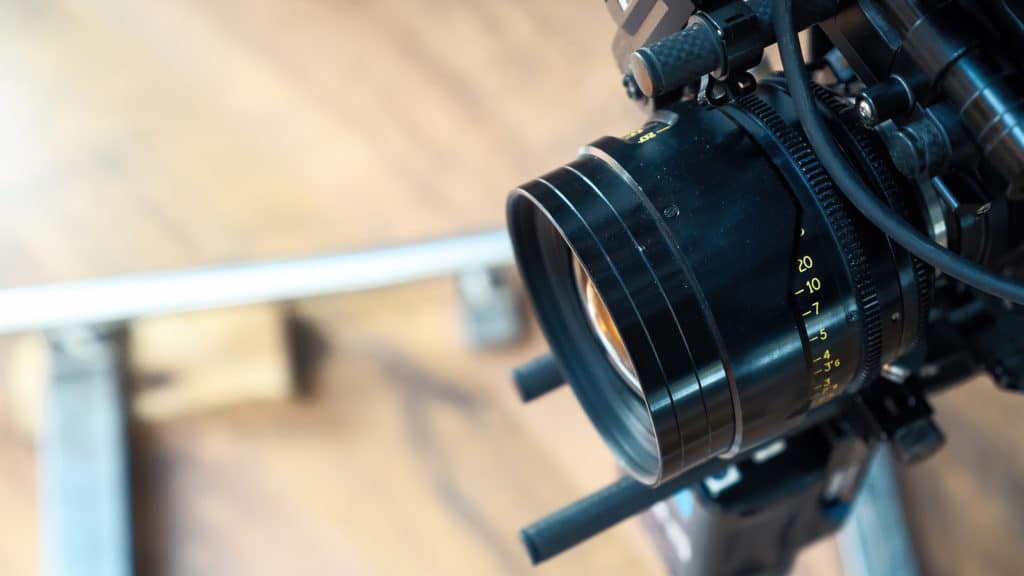The Value of Lawful Video Depositions in Modern Legal Solutions: What You Should Know
Legal video depositions have actually come to be necessary in today's lawful landscape. They give a multidimensional view of witness testaments that standard transcripts simply can not match. By capturing both verbal and non-verbal interaction, these depositions boost the general understanding of a witness's trustworthiness. The effectiveness of video depositions hinges on numerous variables, consisting of conformity with lawful standards and finest practices. Discovering these elements exposes their real relevance in modern-day legal services
What Are Legal Video Depositions?
Legal video clip depositions serve as a crucial tool in the litigation process. They involve recording witness testimonies in a video style, recording both non-verbal and spoken communication. This technique enables attorneys to document the demeanor, expressions, and reactions of witnesses, supplying a richer context for the statement. Normally carried out in a regulated atmosphere, these depositions are led by attorneys that ask inquiries while a court press reporter records the discussion. The resulting video can be critical for test prep work, as it makes it possible for lawyers to assess the integrity of witnesses and improve their methods. Furthermore, lawful video depositions can be made use of in different legal contexts, ranging from civil conflicts to criminal situations. The acoustic and aesthetic aspects of video clip depositions improve the discussion of proof, making it a necessary component in the modern lawful landscape. Generally, they add significantly to the performance and performance of lawful process.

Benefits of Video Depositions Over Typical Approaches
Video clip depositions provide countless benefits contrasted to typical approaches of taking witness testimonies. One substantial advantage is the capacity to catch both audio and visual aspects, supplying an extra thorough record of the witness's statements. This double style improves clearness and permits legal experts to reference particular nuances during trial preparation. Additionally, video clip depositions help with remote involvement, making it easier for witnesses who might be inaccessible for in-person looks due to geographical restrictions or wellness issues.Moreover, video depositions can expedite the general deposition procedure, decreasing the time and expenses connected with travel and logistics. They also boost availability, as videotaped depositions can be conveniently shared amongst lawful groups and referenced at any time. This convenience contributes to better situation administration and prep work. Generally, video depositions stand for a contemporary, efficient approach to gathering witness testaments, aligning with the advancing requirements of the legal occupation.
The Function of Body Language and Tone in Testimonies

In legal video clip depositions, body language and tone play important functions in communicating a witness's trustworthiness and reliability. Nonverbal hints can provide insights right into a witness's psychological state, influencing just how their testimony is regarded. Understanding the impact of these aspects is vital for jurors and lawyers alike when examining the dependability of a testimony.
Nonverbal Interaction Insights
While verbal communication is commonly stressed in lawful statements, nonverbal signs such as body movement and tone play an essential role in conveying reliability and feeling. Onlookers of depositions may note that a witness's posture, gestures, and face expressions can substantially influence assumptions of integrity. Constant eye call might indicate self-confidence, while avoiding look might recommend deceit or pain. Likewise, the intonation-- its pitch, rate, and quantity-- can give sensations of genuineness or uncertainty. Lawyers should be in harmony with these nonverbal signals, as they usually offer important context that matches talked words. Comprehending these nuances can enhance the performance of depositions and influence the end result of legal proceedings.
Emotional Tone Impact
The psychological tone communicated during legal testimonies substantially impacts just how a witness is viewed. Body language, singing inflections, and faces play crucial roles fit the narrative of a testimony. A witness showing confidence via constant eye get in touch with and a calm tone can impart a sense of dependability and engagement. On the other hand, indicators of anxiety, such as fidgeting or an unstable voice, might result in hesitation concerning their account. The nuances of emotional expression can influence the analysis of realities, making it essential for legal specialists to recognize these signs. In video clip depositions, the acoustic and visual parts integrate, highlighting the value of emotional tone in communicating sincerity and reliability within the lawful process.
Reputation and Reliability
An important factor in developing trustworthiness and dependability throughout testimonies hinges on the witness's body language and intonation. Onlookers usually rely upon non-verbal cues-- such as eye call, position, and motions-- to evaluate a witness's sincerity. As an example, a witness that keeps eye call and displays open body movement may be perceived as more truthful and reliable than one that prevents eye call or appears shut off. Furthermore, intonation plays a necessary duty; a stable, tranquil tone can reinforce the trustworthiness of the testament, while variations in pitch or quantity may raise doubts. Ultimately, the mix of body language and vocal tone considerably affects exactly how a witness's statements are gotten and interpreted in a lawful context.
Finest Practices for Conducting Video Depositions
Conducting video clip depositions calls for cautious planning and implementation to assure a clear and reliable discussion of testimony. Initially, it is necessary to pick a silent, well-lit place to reduce distractions and safe and secure optimum video top quality. The equipment ought to be evaluated in advancement, consisting of cameras, microphones, and lights, to prevent technical concerns throughout the deposition.Next, parties entailed need to examine the layout and treatments in advance, making certain that everyone understands their duties. The deponent must be briefed on the procedure, consisting of just how to react plainly and concisely.Additionally, maintaining a professional demeanor throughout the session is essential. This consists of abstaining from speaking over one an additional and verifying that all inquiries are routed suitably. It is critical to videotape the deposition in a format that permits for easy playback and testimonial, maintaining the integrity of the testimony for future usage.
Lawful Factors To Consider and Compliance Issues
Just how do legal factors to consider and conformity problems affect the performance of video clip depositions? Lawyers have to navigate a complicated landscape of regulations, ensuring that video depositions adhere to jurisdictional guidelines and criteria. Compliance with laws concerning personal privacy, consent, and recording methods is vital. For instance, acquiring explicit permission from all celebrations entailed is needed to stay clear of lawful repercussions.Additionally, the admissibility of video proof in court can depend upon compliance with step-by-step requirements. Making certain that the tools made use of satisfies technological requirements is additionally important, as low quality can threaten the deposition's reliability.Moreover, attorneys must know any details state legislations that regulate video clip depositions, as these check my source can differ substantially. Failure to address these considerations can not just endanger the integrity of the deposition yet additionally influence the general situation method, inevitably influencing the customer's lawful outcomes.
How Video Depositions Impact Court Understanding
While video depositions can offer as powerful devices in lawful procedures, their influence on jury perception is significant. The auditory and visual components of video recordings provide jurors with an extra detailed understanding of witness demeanor, reputation, and emotional reactions. This multimedia technique can improve the jurors' ability to analyze the reliability of statement compared to typical text-based transcripts.Moreover, video depositions enable jurors to observe body movement, tone of voice, and faces, all of which can affect their analysis of the witness's declarations. The visibility of a witness on screen can humanize them, promoting compassion and connection, which may guide jurors' point of views. On the other hand, a witness that appears undependable or incredibly elusive on video clip may result in adverse assumptions that affect a court's decision. Inevitably, the dynamic nature of video clip depositions plays a vital role in shaping how jurors analyze evidence and reach their decisions.
The Future of Video Depositions in Legal Technique
As improvements in technology proceed to reshape the legal landscape, the future of video depositions is positioned for considerable evolution. Technologies such as synthetic intelligence, virtual reality, and improved video clip conferencing devices are expected to streamline the deposition procedure and boost availability. Lawful specialists may make use of AI-driven analytics to assess witness trustworthiness and situation stamina a lot more effectively.Moreover, the combination of digital fact might allow courts to experience immersive simulations of depositions, giving deeper context and understanding. In addition, the pattern toward remote depositions is most likely to continue, Get the facts supplying greater adaptability for clients and lawyers alike.As remote work ends up being increasingly stabilized, video clip depositions will likely come to be standard method, reducing expenses and time restrictions related to traditional approaches. Generally, these technological developments guarantee to improve the efficiency, effectiveness, and ease of access of video clip depositions in legal practice, inevitably transforming just how attorneys get ready for trial.
Frequently Asked Questions
Just How Much Do Legal Video Depositions Commonly Cost?

Can Video Depositions Be Utilized in Any Kind of Situation?
Video depositions can be used in different sorts of cases, including civil, criminal, and family members legislation. Their adaptability permits lawyers to existing witness statements successfully, adapting to the certain demands of different legal situations.
What Devices Is Needed for a Video Clip Deposition?
To carry out a video clip deposition, vital equipment includes a high-quality video camera, microphone, lights, and a dependable recording device. Furthermore, a computer system with modifying software program might be needed for post-production and formatting the last video clip.
For how long Does a Regular Video Clip Deposition Last?
A typical video deposition lasts in between 2 to 4 hours, relying on the complexity of the case and the number of questions postured. Extensive sessions may occur, but breaks are normally integrated for participant convenience.

Are Video Depositions Admissible in Court?
Video depositions are normally permissible in court, offered they follow legal standards and regulations of evidence. Their use improves quality and protects witness testimony, aiding in visite site the judicial process throughout trials and hearings. Legal video clip depositions have become important in today's lawful landscape. Additionally, legal video clip depositions can be used in various lawful contexts, varying from civil disputes to criminal instances. In addition, video clip depositions facilitate remote participation, making it much easier for witnesses that may be unavailable for in-person appearances due to geographical constraints or wellness issues.Moreover, video clip depositions can accelerate the general deposition process, minimizing the time and expenses associated with travel and logistics. Making sure that the equipment used meets technical standards is likewise essential, as inadequate top quality can threaten the deposition's reliability.Moreover, attorneys have to be conscious of any type of specific state laws that regulate video clip depositions, as these can differ greatly. Additionally, the fad toward remote depositions is likely to linger, supplying higher versatility for attorneys and customers alike.As remote job comes to be progressively normalized, video depositions will likely become typical method, minimizing expenses and time restrictions associated with standard approaches.